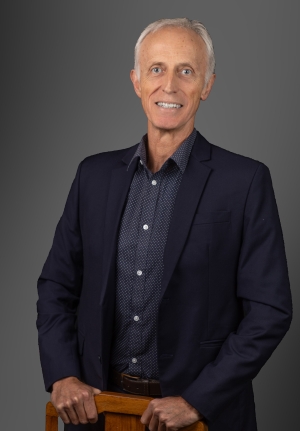Death, divorce and retirement are just some of the life events that can trigger profound emotional responses from clients. This makes the ability to be empathic a key skill for financial planners to develop. Yes, it is a skill. The reality is some people are more naturally empathic than others, but the good news is that we can all develop empathic skills.
The bad news is that empathy has got a bad rap in 2025, from none other than Elon Musk.
In conversation with Joe Rogan earlier this year he said, “The fundamental weakness of Western civilisation is empathy…” He even suggests that empathy could destroy civilisation, an extraordinary perspective. Yet Musk is not alone in his view. Trump 2.0 has seen an onslaught on the virtues of empathy.
The Right Rev Mariann Budde, the Episcopal Bishop of Washington at Trump’s inauguration, implored the new president, “In the name of our God, I ask you to have mercy upon the people in our country who are scared now.” This triggered negative responses from various Christian podcasters such as “Do not commit the sin of empathy” (Ben Garrett) and “Toxic empathy” (Allie Beth Stuckey). US pastor Joe Rigney recently released a book entitled: The Sin of Empathy: Compassion and its Counterfeits.
In contrast, social scientist and author Brené Brown in her book The Atlas of the Heart refers to empathy as “the most powerful tool of compassion” and highlights the findings of researchers that empathy helps interpersonal and ethical decision-making; enhances short-term wellbeing; strengthens relational bonds and allows people to better understand how others see them.
Like financial planners, medical professionals often deal with people experiencing extreme emotions. Various pieces of empirical research show the importance of empathy to healthcare outcomes and suggest that training can improve individuals’ empathy. Research by Prof Helen Riess of Harvard Medical School and founder of Empathetics, a business dedicated to empathy training for medical professionals, indicates that patient outcomes are improved when they are treated by clinicians who have been trained in empathy. This training is critical because the one potential downside of empathy in caring professions is “compassion fatigue”. To prevent this, being able to feel “with” someone rather than “for” them is an important empathic skill to learn.
Riess has studied the neuroscience of empathy, and discovered that empathy is not just a “soft” skill, but that humans are hardwired for empathy, and that our very survival depends on it. But Riess’s experience of shadowing doctors who had poor outcomes with patients highlighted a lack of emotional connection with their patients; they were, “Going through the review of symptoms like chest pain, shortness of breath, edema, swelling, but nothing about connecting with the human being that these symptoms belong to.” Riess observes, “It’s really fascinating that in medical school, we don’t really learn much about emotion at all and yet it is the most powerful driver of whether you’re going to have trust in a therapeutic relationship.”

Trust is also the most powerful driver of financial planning relationships, which makes emotional connection with clients non-negotiable. Brené Brown believes, “Empathy fuels connection,” which suggests that just like healthcare professionals, it is imperative that financial planners develop empathy skills. Being empathic is a tonic for people who seek help from the two most important professions of the 21st century, healthcare and financial planning.
The good news is that no matter what one’s aptitude is for empathy, we can be trained to develop the skills that potentially will make a life-changing difference to client outcomes.
Rob Macdonald has held several senior positions in the investment industry. He is an independent consultant and coach who also develops and facilitates training programmes in behavioural coaching and practice management. Before joining the financial services industry, Macdonald was MBA director at the UCT Graduate School of Business.
He is the author of the book The 7 Pillars of Financial Health and is co-author of Rethinking Leadership. Macdonald has a Master’s degree in Management Studies from Oxford University and is a CFP® Professional.












